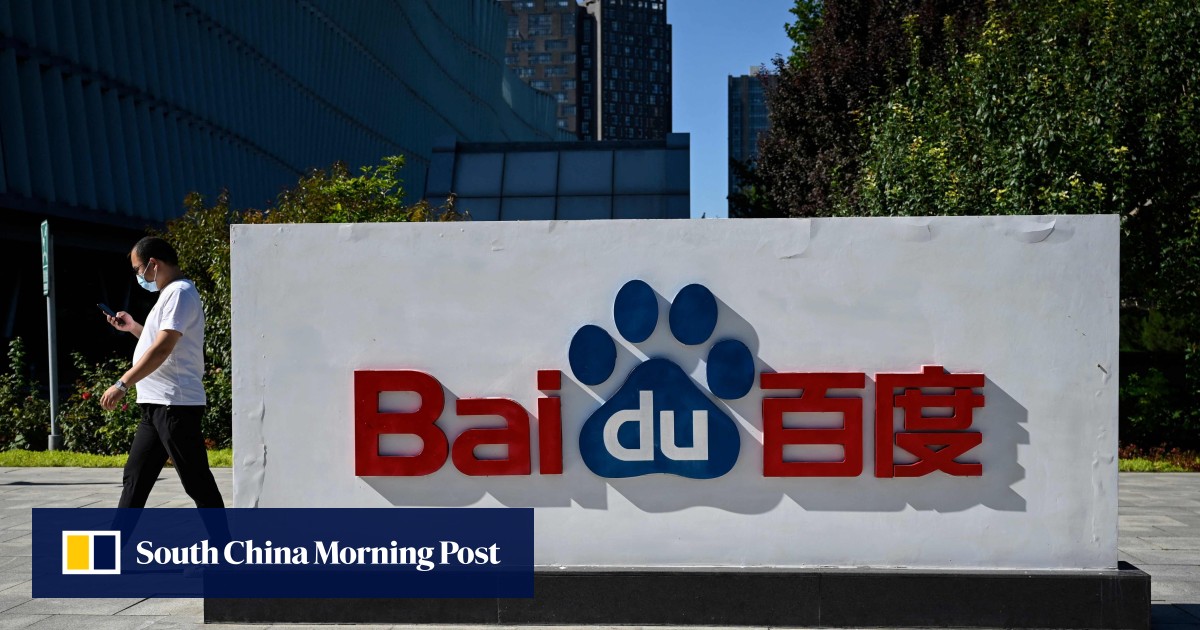Baidu, China’s search engine and artificial intelligence (AI) giant, reported 1 per cent revenue growth in the first quarter of 2024, in line with consensus estimates, as the Beijing-based company contends with heightened domestic competition amid efforts to commercialise its generative AI initiatives.
The firm’s revenue reached 31.5 billion yuan (US$4.3 billion) during the quarter ended March 31, up from 31.1 billion yuan a year earlier, the company reported on Thursday. It roughly matches with the 31.4 billion yuan forecast of analysts surveyed by Bloomberg.
Non-online marketing revenue rose 6 per cent year on year, driven mainly by Baidu’s AI Cloud business, the company said.
Net income came in at 5.4 billion yuan for the period, a 6 per cent fall from 5.8 billion yuan a year ago, beating analysts’ estimates of 3.97 billion yuan.

“As a new era of [generative AI] unfolds in China, foundation models like Ernie will serve as the underlying infrastructure, infusing various facets of people’s lives,” Robin Li Yanhong, co-founder, chairman and CEO of Baidu, said in a statement, referring to the firm’s large language model (LLM).
Li added that Baidu is working to make its Ernie family of models affordable and efficient for the market. “This should provide Baidu with even greater opportunities ahead,” he said.
Baidu’s shares fell less than 1 per cent to close at HK$108.4 ahead of the earnings release on Thursday.
As part of moves to monetise its AI products, Baidu introduced three tools based on Ernie to help developers build applications, AI agents and models, in some cases without the need to know how to code.
That followed the company’s launch in November of a paid version of Ernie 4.0 for 59.9 yuan per month.
Baidu faces intense competition from other AI players in China. While ChatGPT and similar services from Google are officially unavailable in the country, Chinese firms and institutions have developed more than 200 LLMs, according to estimates by the government.

